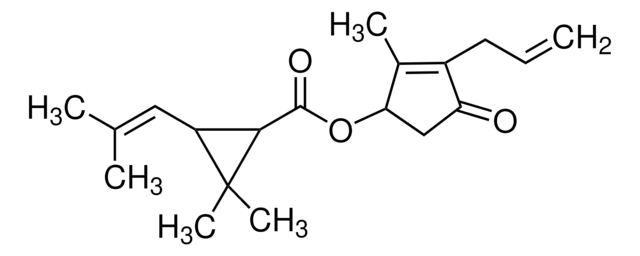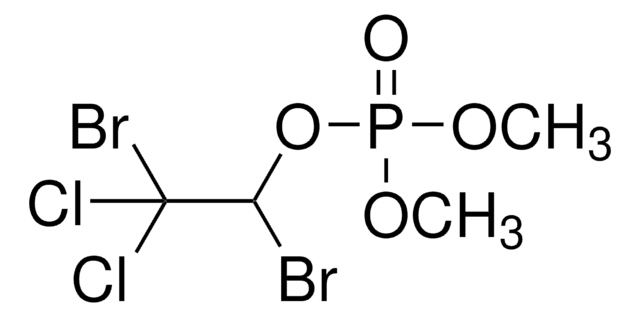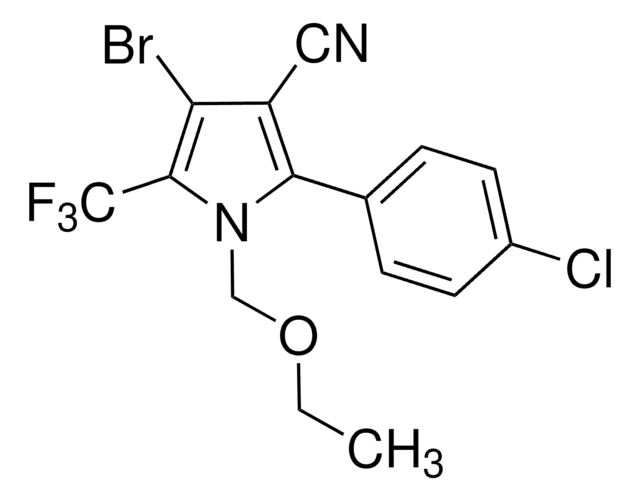33738
Baythroid®
PESTANAL®, analytical standard
Synonym(s):
Cyfluthrin
About This Item
Recommended Products
grade
analytical standard
Quality Level
description
mixture of isomers
product line
PESTANAL®
shelf life
limited shelf life, expiry date on the label
technique(s)
HPLC: suitable
gas chromatography (GC): suitable
application(s)
agriculture
environmental
format
neat
SMILES string
CC1(C)C(\C=C(\Cl)Cl)C1C(=O)OC(C#N)c2ccc(F)c(Oc3ccccc3)c2
InChI
1S/C22H18Cl2FNO3/c1-22(2)15(11-19(23)24)20(22)21(27)29-18(12-26)13-8-9-16(25)17(10-13)28-14-6-4-3-5-7-14/h3-11,15,18,20H,1-2H3
InChI key
QQODLKZGRKWIFG-UHFFFAOYSA-N
Looking for similar products? Visit Product Comparison Guide
General description
Application
Legal Information
Signal Word
Danger
Hazard Statements
Precautionary Statements
Hazard Classifications
Acute Tox. 2 Inhalation - Acute Tox. 2 Oral - Aquatic Acute 1 - Aquatic Chronic 1 - Lact. - STOT SE 1
Target Organs
Nervous system
Storage Class Code
6.1A - Combustible acute toxic Cat. 1 and 2 / very toxic hazardous materials
WGK
WGK 3
Flash Point(F)
Not applicable
Flash Point(C)
Not applicable
Choose from one of the most recent versions:
Already Own This Product?
Find documentation for the products that you have recently purchased in the Document Library.
Customers Also Viewed
Protocols
Test your food for fipronil contamination using our analytical standards, certified reference materials, solvents, and columns for analysis.
Test your food for fipronil contamination using our analytical standards, certified reference materials, solvents, and columns for analysis.
Test your food for fipronil contamination using our analytical standards, certified reference materials, solvents, and columns for analysis.
Test your food for fipronil contamination using our analytical standards, certified reference materials, solvents, and columns for analysis.
Our team of scientists has experience in all areas of research including Life Science, Material Science, Chemical Synthesis, Chromatography, Analytical and many others.
Contact Technical Service












